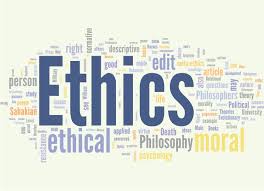RS Revision

Knowledge of Ethics and Ethical Dilemmas
Ethics: The study of right or wrong.
Ethical Dilemma: Discussion of what the right thing to do is in a particular situation.
Sources of Authority
Truth: Something that is believed or known based on a source of authority.
Source of Authority: Something we use to help us know what is true (e.g. religious texts, leaders, traditions).
The 10 Commandments
Christians and Jews follow the 10 Commandments as a set of moral principles given by God. These commandments cover aspects of worship and human relationships.
The 10 Commandments are:
You shall have no other gods before Me.
You shall not make for yourself a carved image.
You shall not take the name of the Lord your God in vain.
Remember the Sabbath day, to keep it holy.
Honor your father and your mother.
You shall not murder.
You shall not commit adultery.
You shall not steal.
You shall not bear false witness against your neighbor.
You shall not covet.
Animal Rights Issues and Religious Teachings
Knowledge of a range of animal rights issues includes debates over factory farming, animal testing, and habitat destruction.
Religious teachings often emphasize stewardship (caring for God’s creation) and respect for all living beings.
Creation and Environmental Care
Key religious ideas about how the world was created typically reflect beliefs about divine creation, with a duty to care for the planet stemming from Dominion (power given by God) and Stewardship (responsibility to care for the world).
In Islam, Khalifah refers to the concept of being stewards on Earth.
Wealth and Poverty
Reasons for wealth and poverty vary, including economic systems, opportunities, and education.
The Poverty Line is defined by the U.N. as the minimum amount of money needed for survival.
Religious teachings often encourage helping the poor, with concepts such as Charity, Zakah (2.5% of wealth to charity), and Sadaqah (additional voluntary charity). Quotes from religious texts support these teachings, promoting compassion and support for those in need.
Just War Theory
Just War Theory outlines conditions that must be met for a war to be considered justifiable under Christian teachings.
Criteria include: just cause, legitimate authority, right intention, probability of success, last resort, and proportionality.
Evaluation of Religious and Ethical Views
Critically evaluating religious and ethical views involves assessing their reasoning and arriving at a personal stance on these matters.
Key Terminology
Ethics The study of right or wrong
Ethical dilemma Discussion of what the right thing to do is in a particular situation
Truth Something that is believed or known based on a source of authority
Source of authority Something we use to help us know what is true
Golden rule Religious teaching that we should treat people the way we would wish to be
Dominion The religious view that God gave us power over creation so we can use it
Stewardship The Christian view that God gave us a responsibility to care for the world
Khalifah The Muslim term for a ‘steward’
Sustainable energy Energy that is renewable or that doesn’t compromise needs in the future
Charity (Voluntary) actions that are done in order to help others
Zakah From the 5 Pillars - giving 2.5% of one’s wealth to charity
Sadaqah Additional charity that a Muslim can choose to give over and above zakah
Pacifism The belief that it is never right to fight / go to war
Poverty Line The amount of money that U.N suggests is the minimum that people can survive on.
Just War theory A Christian theory that sets out rules about when it is justified to go to war
Addiction A brain disorder where a person cannot stop doing an action
Drugs A substance that has a physiological effect on the body
Retribution To punish the offender. This could be in the form of a prison sentence, fines or in some countries execution.
Deterrence The threat of being punished is enough to stop the crimes being committed in the first place
Reformation Helping offenders to realise that their behaviour is wrong and aiding them to become better people who can contribute to society. This can take the form of education or job/skills training in prisons.